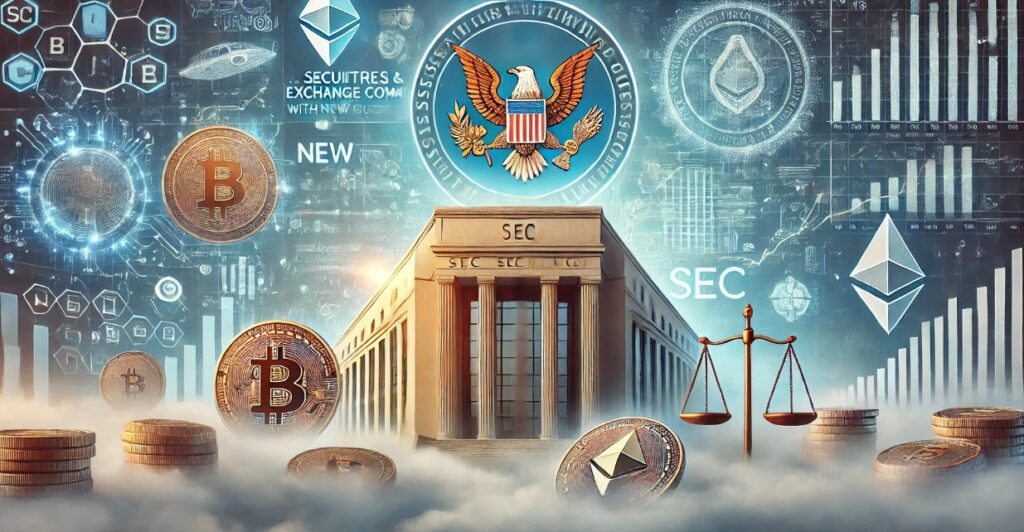In a time where financial landscapes are rapidly evolving, understanding the role of decentralized finance (DeFi) becomes crucial for investors and enthusiasts alike. Recently, Paul Atkins, the newly appointed Chair of the US Securities and Exchange Commission (SEC), shared his insights on the future of DeFi and its alignment with key American values such as economic freedom, innovation, and the protection of private property. Delivered during a significant roundtable discussion titled “DeFi and the American Spirit,” Atkins’ address highlighted the potential DeFi holds for reshaping financial systems in favor of more inclusive participation and autonomy.
Paul Atkins’ Vision for DeFi and Cryptocurrency Regulations
Advocating for Decentralization and Self-Custody
Atkins began his speech by expressing appreciation for the collaborative efforts of his fellow commissioners and the Crypto Task Force in organizing the event, underscoring the importance of dialogue in navigating the future of cryptocurrency. He emphasized blockchain technology as a transformative force challenging conventional views on ownership and property rights by enabling transactions without intermediaries, thus fostering a new form of digital property—cryptographic assets.
Criticizing the previous administration’s regulatory approach, led by former Chair Gary Gensler, Atkins argued that such policies discouraged American involvement in decentralized markets through threats of regulation and legal challenges. He welcomed clarifications from the SEC’s Division of Corporation Finance, recognizing that participation in proof-of-work (PoW) or proof-of-stake (PoS) networks doesn’t automatically fall under federal securities laws. Nonetheless, he pointed out the critical need for formal regulations to cement this understanding.
A central theme in Atkins’ discourse was the principle of self-custody in digital asset management, which he identified as an essential American freedom. He advocated for greater autonomy in managing crypto assets, suggesting that eliminating unnecessary intermediaries could reduce transaction costs and promote engagement in blockchain activities such as staking.
Innovative Approaches to Crypto Regulation
Atkins further articulated his disapproval of the prior administration’s regulatory stance, viewing it as an impediment to self-custodial innovation. He likened potential regulations holding software developers liable for users’ actions to holding car manufacturers responsible for traffic violations, arguing this would be an unreasonable burden on developers.
Despite these challenges, Atkins highlighted the robustness of decentralized systems during recent market disruptions, noting that while centralized entities faltered, decentralized protocols sustained their functions as designed. Acknowledging that the existing securities laws predominantly apply to traditional issuers and intermediaries, he directed SEC staff to investigate new regulations to enable legal transactions using these breakthrough technologies.
Looking forward, Atkins expressed enthusiasm for the potential of blockchain networks to boost capital efficiency and liquidity, alongside the creation of innovative financial instruments. To foster this growth, he proposed an “innovation exemption,” potentially granting conditional leniency for developers and companies bringing on-chain solutions to fruition, positioning the US as a frontrunner in global cryptocurrency innovation.
“`html
How does DeFi align with core American values?
DeFi harmonizes with American values by promoting economic freedom, fostering innovation, and preserving individual rights to private property. By enabling peer-to-peer transactions without intermediaries, it empowers individuals with greater control over their financial assets.
What impact do current SEC regulations have on cryptocurrency markets?
Current SEC regulations, particularly those under former Chair Gary Gensler, have been criticized for restricting American participation in decentralized finance through threats of litigation and regulatory uncertainty. However, recent clarifications aim to provide better guidance, promoting innovation while ensuring investor protection.
What is meant by self-custody in the context of cryptocurrency?
Self-custody refers to individuals managing their crypto assets directly without the need for intermediaries. This approach offers increased security and autonomy, reducing transaction costs and enhancing participation in blockchain-based activities.
Why are new regulatory frameworks necessary for DeFi?
Existing securities laws are primarily tailored to traditional financial systems and may not fully address the unique characteristics of decentralized finance. New frameworks are needed to ensure compliance, facilitate innovation, and maintain market integrity while protecting investors within the evolving digital asset landscape.
“`
Adhering to stringent editorial standards, the content provided by our team is meticulously researched, ensuring accuracy and impartiality. This dedication upholds our commitment to delivering valuable insights to our readers, reviewed meticulously by experienced technology experts and editors.

